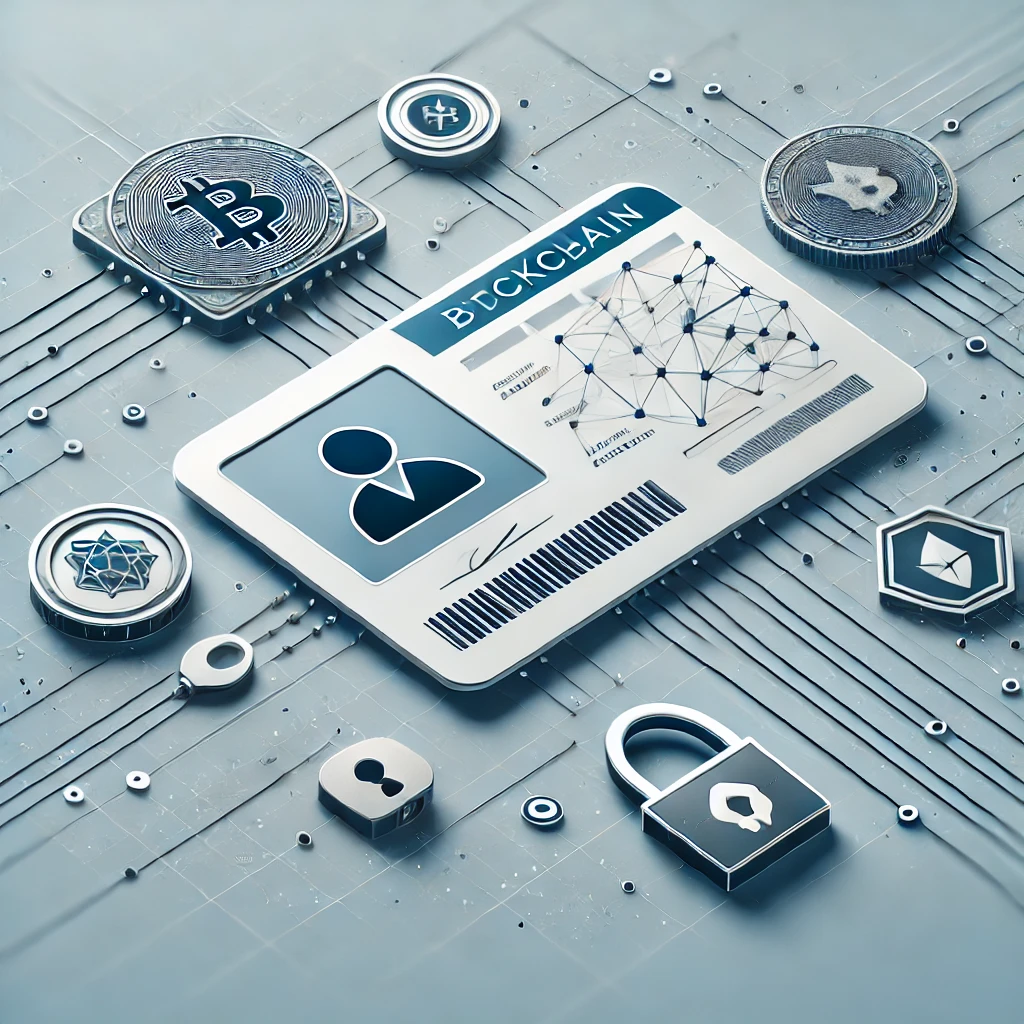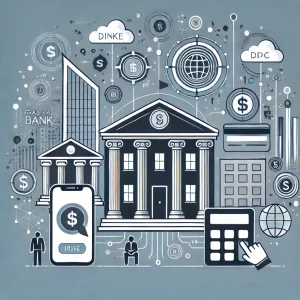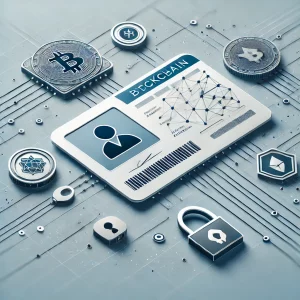How Blockchain is Changing Identity Verification

Identity verification is an essential aspect of modern digital society, used for securing access to services, confirming a person’s identity, and protecting against fraud. However, traditional identity verification methods, such as relying on centralized authorities, passwords, and physical documentation, are increasingly seen as vulnerable to cyber threats, inefficiency, and privacy concerns. The emergence of blockchain technology is changing the landscape of identity verification by offering a more secure, decentralized, and transparent approach.
In this article, we will explore how blockchain technology is revolutionizing identity verification, the advantages it offers, the challenges it faces, and its potential future impact on sectors ranging from banking to healthcare.
1. What is Blockchain Technology?
Before diving into its role in identity verification, it’s essential to understand what blockchain is and how it works. At its core, blockchain is a distributed ledger technology that allows for the secure, transparent, and tamper-proof recording of transactions. Instead of being stored on a single centralized database, data is distributed across a network of computers (nodes), with each node maintaining a copy of the blockchain. This structure makes it incredibly difficult to alter or tamper with data, as any changes would need to be made simultaneously across all copies of the blockchain.
Blockchain is the underlying technology behind cryptocurrencies like Bitcoin and Ethereum but has applications far beyond financial transactions. Its decentralized nature, immutability, and transparency have made it an attractive solution for many industries, including identity verification.
2. Traditional Identity Verification Challenges
Traditional identity verification methods rely heavily on centralized systems controlled by banks, government agencies, or other institutions. Users typically verify their identity by submitting personal information, such as social security numbers, passwords, biometric data, and government-issued identification documents.
However, these systems face several problems:
Data Breaches and Fraud
The centralization of personal data makes it an attractive target for cybercriminals. Data breaches, such as the infamous Equifax breach in 2017, expose personal information of millions of individuals, leading to identity theft and fraud. Centralized systems are also more prone to hacking, where a single breach could expose vast amounts of personal data.
Identity Theft
Identity theft occurs when someone gains unauthorized access to another person’s identity to commit fraud. Traditional verification methods rely heavily on passwords and physical documents, which can be stolen or forged, making them vulnerable to misuse.
Inconvenience and Lack of Control
Users often struggle with managing multiple identities across different platforms, and they have little control over how their personal data is stored and used. For example, every time a user logs into an online service or interacts with a business, they must trust that their data is securely handled, often without knowing how it is stored or shared.
Privacy Concerns
Centralized systems collect vast amounts of personal data, which may be stored indefinitely. This raises concerns about privacy, data ownership, and unauthorized access. Users typically have limited control over their own data and often have to trust third-party organizations to keep it safe.
3. Blockchain-Based Identity Verification
Blockchain addresses many of the issues associated with traditional identity verification systems. Here’s how blockchain is revolutionizing the way we verify identities:
Decentralization and Control
One of the core features of blockchain technology is decentralization. Unlike traditional systems where personal data is stored in a central database, blockchain distributes the data across a network of nodes. This means there is no single point of failure, reducing the risk of data breaches or hacks.
With blockchain-based identity verification, individuals have full control over their personal data. They can store and manage their digital identity securely, and share it only when needed. Instead of relying on a third-party organization to verify their identity, individuals themselves can verify their identity in a secure, tamper-proof environment.
Enhanced Security and Immutability
Blockchain’s inherent security features—cryptography and immutability—make it an ideal technology for identity verification. Each identity record on a blockchain is linked to a unique cryptographic hash, which ensures the data is encrypted and protected from tampering. Once a record is added to the blockchain, it cannot be altered without the consensus of the network, making it nearly impossible to forge or manipulate personal information.
This provides a significant advantage over traditional methods that rely on documents or passwords, which can be lost, stolen, or duplicated. In blockchain-based systems, any unauthorized attempts to alter the identity record would be easily detectable by the network.
Self-Sovereign Identity (SSI)
Blockchain technology enables the concept of Self-Sovereign Identity (SSI), a decentralized form of identity management. With SSI, individuals have ownership and control over their personal data, rather than relying on centralized institutions to manage it. Through a blockchain-based digital identity, users can prove their identity to third parties without sharing unnecessary personal information. This reduces the risk of data exposure and protects privacy.
For example, a person could use their blockchain-based digital identity to access online services without having to provide sensitive details such as their date of birth, address, or social security number. They can selectively disclose specific attributes, such as their age or membership in a particular organization, without revealing their full identity.
Verification and Trust
Blockchain technology creates a verifiable and trusted system for identity authentication. When a person’s identity is verified and recorded on the blockchain, any party accessing that information can trust its authenticity. There is no need for intermediaries or third-party verification services, reducing the risk of fraud and the associated costs.
For example, in the financial sector, banks can use blockchain to verify customer identities for Know-Your-Customer (KYC) compliance. Once verified on the blockchain, customers can use their digital identity across multiple financial institutions without having to repeat the verification process.
4. Blockchain and Biometric Identity Verification
Combining blockchain with biometric technologies, such as fingerprint scanning, facial recognition, and iris scans, can enhance identity verification further. While biometric data itself is sensitive, using blockchain ensures that biometric information is stored securely and is only accessible to the individual and authorized entities.
Blockchain can store a hash of biometric data rather than the data itself, offering an additional layer of security. This means that even if the blockchain is accessed, the actual biometric data is not exposed—only the encrypted hash remains, ensuring privacy and reducing the risk of data theft.
5. Blockchain Use Cases in Identity Verification
Several industries are already leveraging blockchain technology for identity verification:
Financial Sector
Financial institutions use blockchain for KYC and Anti-Money Laundering (AML) compliance. By utilizing a blockchain-based identity system, banks can verify the identities of their customers more efficiently and securely. Customers only need to undergo the verification process once, after which their digital identity can be used across multiple institutions, eliminating the need for repetitive checks.
Healthcare
Blockchain can also transform patient identity verification in the healthcare sector. Patients can control their health records and share them with healthcare providers as needed, ensuring the security and integrity of their medical data. This reduces the risk of fraud and identity theft in medical records and ensures that patients are the only ones who can give consent for the release of their data.
Government Services
Governments can use blockchain to issue digital IDs, reducing the need for physical documents. Blockchain can be used to securely store government-issued IDs, allowing citizens to access government services online with confidence. These digital IDs are more secure, resistant to fraud, and less prone to loss or theft.
Travel and Immigration
Blockchain-based identity verification can simplify travel and immigration processes. By storing digital passports or visas on the blockchain, travelers can securely verify their identity at border crossings without relying on physical documents. The decentralized nature of blockchain ensures that the identity verification process is fast, secure, and transparent.
6. Challenges and Limitations
While blockchain offers many benefits, it is not without challenges. The adoption of blockchain-based identity systems requires widespread infrastructure, legal frameworks, and standardization. Privacy concerns, scalability, and the need for user-friendly interfaces also remain obstacles to widespread adoption.
Furthermore, the decentralized nature of blockchain may present legal and regulatory challenges, as some jurisdictions may require centralized authority for identity verification processes.
7. Conclusion
Blockchain is set to revolutionize the way we verify identities, offering a more secure, decentralized, and transparent alternative to traditional methods. By providing individuals with control over their data and ensuring greater privacy and security, blockchain-based identity verification systems could have a transformative impact across industries such as finance, healthcare, and government services.
As blockchain technology continues to evolve, its potential to streamline and safeguard identity verification will likely play a pivotal role in shaping the future of digital identity management. With improved security, privacy, and trust, blockchain is poised to address many of the challenges of current identity verification systems and create a more secure and efficient digital world.






